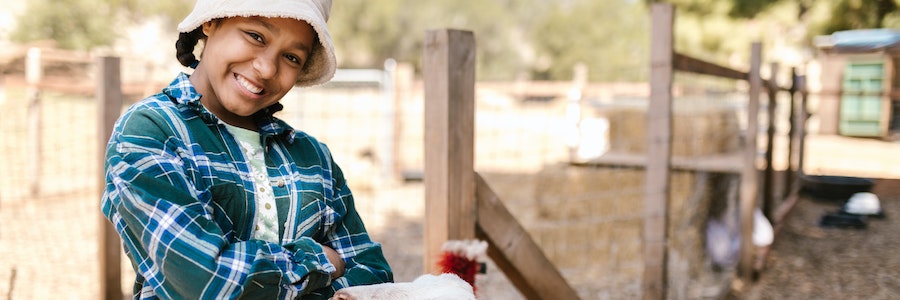The California FFA Foundation has launched one of its most ambitious fundraising programs to date, the “Seeds of Impact” campaign, which honors farmers and agriculture philanthropists John and Gail Kautz.
The campaign aims to reach a $2 million fundraising goal to be used to further the Foundation’s commitment to supporting the next generation of agricultural leaders across California, according to Emily Rooney, President of the Agricultural Council of California and current chair of FFA Foundation Board of Directors.
The California FFA Foundation campaign has received a huge boost from the James G. Boswell Foundation, which is donating $1 million towards the $2 million fundraising goal. The organization is looking to raise the remaining $1 million dollar from public donations.
According to Rooney, The “Seeds of Impact” campaign celebrates the unwavering commitment of John and Gail Kautz to agricultural education.
The Kautz’s farm over 5,000 acres in the Lodi, California area, own Ironstone Vineyards in the Sierra Foothill region, and have numerous other agribusiness interests in the state. The husband and wife team also are philanthropists, focusing primarily on agriculture and on the communities where they live and do business.
The California FFA Foundation, which is affiliated with the National FFA Organization (in the past also known as Future Farmers of America) prepares students for successful careers and a lifetime of informed choices in the global agriculture, food, fiber and natural resources systems.

California is the largest ag state in the U.S., producing over 400 different crops and boasting the largest food processing and distribution system in the country.
The California FFA Foundation and National FFA have played a central role in enabling the state to achieve this impressive success by educating generations of leaders. One commonality among nearly every person who works in agriculture in California is that they have a blue and gold corduroy jacket, the iconic symbol of being an FFA member.
The work of both the California FFA Foundation and National FFA, which celebrates its 95th this year, has never been more important than it is today. Here in California as well as nationally, constant change – climate change, drought, labor shortages, inflationary costs, on and on – is the norm in agriculture, and the best way to address the dynamic and challenge of constant change is through education.
Education is what FFA stands for statewide in California and nationally and in order to continue to do so it needs the resources to educate new generations of agriculture leaders. Food and farming in America depend on it.
Today there are over 850,000 FFA members in 8,995 chapters. FFA chapters are found in all 50 states, Puerto Rico, and the U.S. Virgin Islands.
The California FFA recently elected its new slate of student officers for the 2023-24 year at its 95th State Agricultural Leadership Conference in Ontario, California.
Austin Bell from Gustine High School in the San Joaquin Valley town of Gustine was elected president. Other key officers include: Sierra Short, vice president, Makena Stanisai, secretary, and Sydney Maric, treasurer.
State officers commit to a year of service to the California Association FFA. Throughout the year of service they interact with business and industry leaders, FFA members and teachers, corporate sponsors, government and education officials, local FFA leaders, and the general public. They are the young faces that represent the future of agriculture in California.
Those faces too have changed to reflect the diversity that is California. Twenty years ago, FFA membership in the Golden State was still roughly 60% white and 60% male. But according to California FFA’s 2021-22 Fact Sheet, 45% of members were Hispanic, 40% were white, 10% were of two or more races, and 2.5% each were Black and Asian. In addition, 73% of its 98,912 members were women.
The California FFA Foundation exists to support these future agriculture leaders and all those who will come after them in FFA chapters throughout California, from those in big cities like Los Angeles and San Francisco, to those in rural areas where food, farming and fiber remain the backbone of those economies.
Fundraising programs like the “Seeds of Impact” campaign and others are essential to keep educating new generations of agriculture leaders in California. You can learn more here: https://www.kautzffalegacy.org/.
FFA also is essential as a way not only to continue educating young agriculturists but also to keep food, fiber and farming top-of-mind in the Golden State. School FFA programs serve to inform the general public about agriculture in California, both as an industry and as a way of life.
It takes a village – and money – to keep a valuable program like FFA going strong. California FFA has been and remains essential to the present and future of agriculture in the Golden State.
My Job Depends on Ag Magazine columnist and contributing editor Victor Martino is an agrifood industry consultant, entrepreneur and writer. One of his passions and current projects is working with farmers who want to develop their own branded food products. You can contact him at: [email protected].







